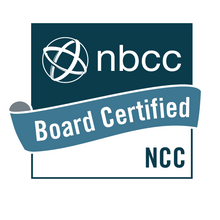Clinical Supervision

Role as Clinical Supervisor
As a supervisor, Dr. James provides a nonjudgmental stance, genuineness, openness empathy, and warmth to the concerns of a supervisee. It should be noted that Dr. James discusses parallel relationships in terms of racial / cultural identities along with providing a relaxed atmosphere for the supervisee to discuss their racial or cultural concerns with clients. Furthermore, the supervisee may benefit from Dr. James' acknowledgement and processing of multicultural similarities or differences to explore the supervisee’s feelings concerning culture.
As a cognitive behavioral supervisor, it is important to pay particular attention to the cognitions and behaviors of supervisee’s in terms of their professional identity and reaction to clients. As a clinical supervisor, Dr. James implores techniques to address the cognitions and behaviors of supervisees such as bridging from the previous sessions, establishing an agenda for supervision sessions, and assigning homework.
Supervisor’s Scope of Competence
Dr. James received his Masters degree in 2004 from Seton Hall University in Counseling Psychology and Doctorate of Education (Ed.D) in Counseling Psychology at Argosy University in 2013. In addition, Dr. James is Licensed Professional Counselor (LPC) in the state of New Jersey, a National Certified Counselor (NCC) through the National Board for Certified Counselors (NBCC), an Approved Clinical Supervisor (ACS) through the Center for Credentialing and Education, Inc. (CCE), and Distance Credentialed Counselor (DCC) through CCE.
Dr. James is an Intensive In-Home Counselor (IIH) through his company James Consulting Services, LLC where he provides in home counseling and consultations for parents and children with individual / developmental disabilities along with families court ordered by the Division of Child Protection and Permanency (DCP&P) in high risk areas.
For the past 8 years, Dr. James has provided supervision to graduate students at New Community Corporation’s Harmony House Transitional Housing Shelter located in Newark, NJ along with the Jersey City Medical Center.
In particular, Dr. James’ training included the doctoral course entitled, “Models of Clinical Supervision.” In short, the course examined the current definitions and applications of clinical supervision. The major models of clinical supervision were presented, along with the role of clinical supervision in a variety of settings, including the academic “counselor-in-training” as well as the various professional settings in which clinical supervision may be performed. The course explored the benefits and shortcomings of individual versus group supervision, with particular focus on characteristics that make for a competent supervisor and effective supervisory relationships. It further explored the role of both supervisor and supervisee, ethical and legal considerations, evaluative criteria, cultural and gender issues, and research issues and methods.
From successfully completing the aforementioned course, Dr. James developed an individual training model and an ability to demonstrate an understanding of the ethical requirements of supervision. Below is a synopsis of Dr. James’ personal philosophy and model of supervision as a clinical supervisor.
Discussion of Personal Philosophy and Model of Supervision / Description of Dr. James' Role as a Clinical Supervisor
In discussing the Dr. James' personal philosophy and model of supervision, it is important to discuss a combination of models grounded in psychotherapy, developmental, and social role. In particular, Dr. James' personal model of clinical supervision include cognitive behavioral, stage developmental (Integrated Developmental Model – IDM), and discrimination. In this section, Dr. James describes each model along with his role as a supervisor. To accomplish this, Dr. James provides a brief description of each model’s underlying philosophical foundation, basic tenets, focus, and developmental stages.
Cognitive Behavioral Model
The cognitive behavioral model works on the hypothesis that consequences identify and support both positive and negative behaviors (Bernard & Goodyear, 2009). Additionally, the cognitive behavioral model of supervision has more of an emphasis on the systematic presentation of the goals and processes in supervision.
Similarly, the cognitive behavioral model of supervision has a focus on the role of monitoring and assessment. As a clinical supervisor, learning is essential and it is the supervisors’ role to guide supervisees into an appropriate learning setting (Bernard & Goodyear, 2009).
Integrated Developmental Model (IDM)
The Integrated Developmental Model (IDM) is one of the best-known stage developmental models (Maki & Delworth, 1995). In short, the IDM of supervision describes counselor development happening within four stages with each stage characterized by changes on three overriding structures (Stoltenberg, McNeill, & Delworth, 1998). Additionally, those structures include self–other awareness, motivation, and autonomy.
The IDM is descriptive regarding the processes of supervisees and supervisor interventions (Bernard & Goodyear, 2009). In addition, the IDM has a cognitive basis that relies on the development of expertise. It should be noted that the most recent version of the IDM incorporates interventions for supervisors (Bernard & Goodyear, 2009). It is in Dr. James' opinion that the IDM interventions may complement the cognitive behavioral model being that the IDM has a cognitive basis.
Discrimination Model
In discussing the discrimination model, Dr. James focuses on the work of Bernard (1979), (1997), and Luke and Bernard (2006). In short, the discrimination model joins three meeting points for supervision and three supervisory roles. In particular, the discrimination model centers the attention on a supervisors’ attention to the intervention skills, conceptualization skills, and personalization skills of a supervisee.
Regarding roles, the supervisor must determine (after judging the supervisee’s abilities) an appropriate role to complete their supervision goals (Bernard & Goodyear, 2009). In brief, the roles include teacher, counselor, or consultant. It is in Dr. James' opinion that the discrimination model allows for altering of responses to fit the specific supervisee needs.
It is also in Dr. James' opinion that the discrimination model complements the cognitive behavioral and IDM models in that it provides the flexibility to employ the teaching role or the consultant role depending on the level of supervision.
Interested in Clinical Supervision?
Contact Dr. James at 201-450-6744 or email at rationalcbt@gmail.com for details. Fees are as follows:
$50.00 per half hour
$100.00 per Hour
Mission Statement
We dedicate ourselves to the visualization of autonomy, justice, beneficence, and fidelity in providing meaningful help to culturally diverse populations receiving clinical services.
It is our goal to engage and educate the individual in providing meaningful help in both feeling and getting better to culturally diverse populations.
Mental Health Center from WebMD
Mental health disorders affect an estimated 22% of American adults each year. Here you'll find in-depth mental health information including care, and various mental health conditions.


